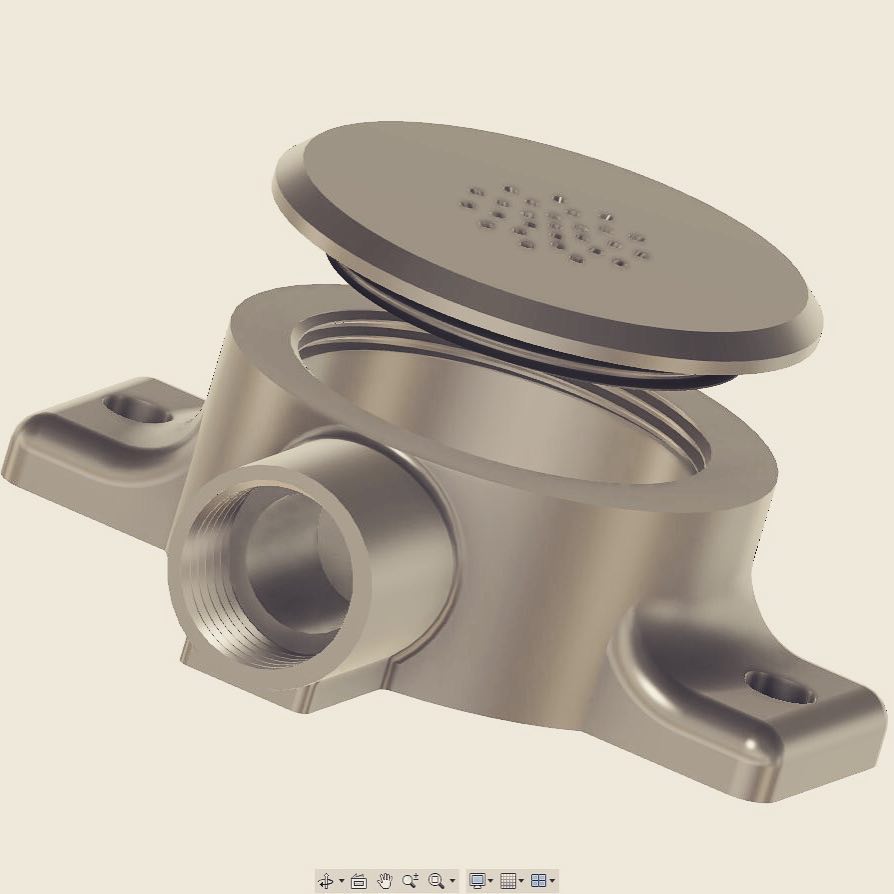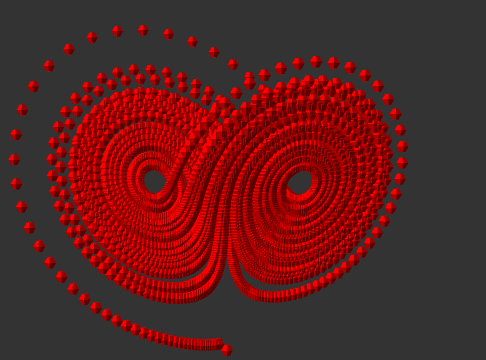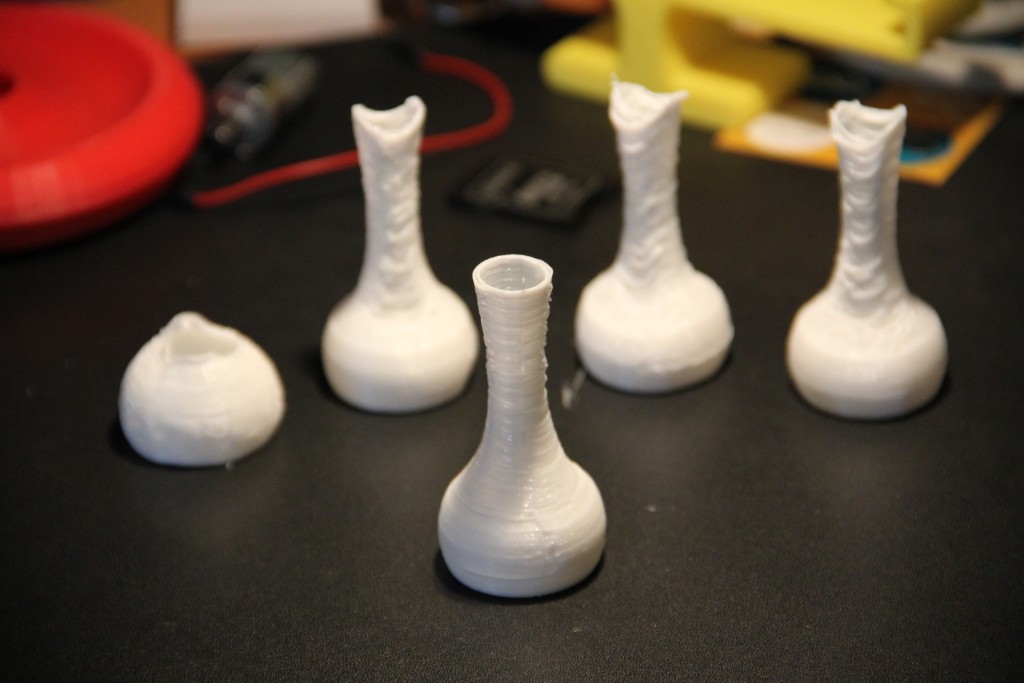This is part of a late night crazy idea to make a 3D Printed Sprinkler that had customizable interchangeable screw-on plates that give different patterns. Also it was something fun to make with my new budding Fusion 360 skills.
This is part of a late night crazy idea to make a 3D Printed Sprinkler that had customizable interchangeable screw-on plates that give different patterns. Also it was something fun to make with my new budding Fusion 360 skills.


UPDATE: There is an online version of this here. Just use the customizer to see how it works! https://www.thingiverse.com/thing:1187587
Chaos theory scientists often like to use this model to show how small changes in initial conditions can result in unanticipated behavior is systems.
This is the Lorenz System that can be tinkered with to see how small changes can have unpredictable results.
This model wasn’t intended to be printed but was more of a challenge to see if it could be modeled in this program.
I would like to thank Dr. David Morgan, atartanian and JeanInNepean for the heavy lifting when it came to this project.

NinjaFlex printed “Simple Vase”
Take Away:
Definitely a challenge to print with but the rewards might be worth it depending on your end goals.
The Journey:
It might have taken a day or two worth of fiddling around to get the extruder together on our MakerBot Replicator 2X using MakerBot’s extruder upgrade kit ($8: consists of a spring, bearing and a screw). The instructions for the upgrade on the Makerbot site is for a Replicator 2 (NOT the 2X) and the thickness of the extruder block and how they line up are all different so that was a dead end at first.
I ended up using the Thingiverse extruder files created by 3FPD (our make pic: http://www.thingiverse.com/make:87985) and I finally got the stuff to load without bending and buckling (too much).
Lastly it took a day or two of fiddling with the MakerBot profiles to find the right mix of heat/retraction/speed and so on to get a successful print. (for us it didn’t work with the recommended settings and temps) Above you’ll see some of the prints leading up to the pretty well done Simple Vase print.
The MakerWare (now MakerBot) profile that I used to create the finished “simple vase” and the iPhone 5 bumper posted by Adafruit